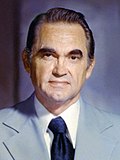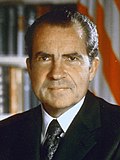| ||||||||||||||||||||||||||||||||||||||||
Presidential delegate primary | ||||||||||||||||||||||||||||||||||||||||
82 Democratic National Convention delegates | ||||||||||||||||||||||||||||||||||||||||
|---|---|---|---|---|---|---|---|---|---|---|---|---|---|---|---|---|---|---|---|---|---|---|---|---|---|---|---|---|---|---|---|---|---|---|---|---|---|---|---|---|
| ||||||||||||||||||||||||||||||||||||||||
Presidential preference primary (non-binding) | ||||||||||||||||||||||||||||||||||||||||
No Democratic National Convention delegates | ||||||||||||||||||||||||||||||||||||||||
| ||||||||||||||||||||||||||||||||||||||||
The 1968 New Jersey Democratic presidential primary was held on June 4, 1968, in New Jersey as one of the Democratic Party's statewide nomination contests ahead of the 1968 United States presidential election.
Contents
- Background
- Primary campaign
- Procedure
- Candidates
- Withdrew
- Results
- Preference primary results
- Delegate primary results
- Aftermath
- References
In the binding delegate primary, uncommitted delegates won a large majority over delegates pledged to support Eugene McCarthy. McCarthy captured nineteen delegates by narrowly winning several of the state's suburban congressional districts, including nine out of ten delegates from Bergen County. The uncommitted delegates were expected to determine internally whether to support Hubert Humphrey or Robert F. Kennedy. However, Kennedy was assassinated on the night of the primary, leading the New Jersey delegation to support Humphrey at the convention. [1]
In the preference primary held at the same time, McCarthy won with 36.1 percent of the vote. However, no candidate appeared on the ballot and far fewer voters participated in the write-in preference primary, which had no binding effect on the delegates. [1] [2]





